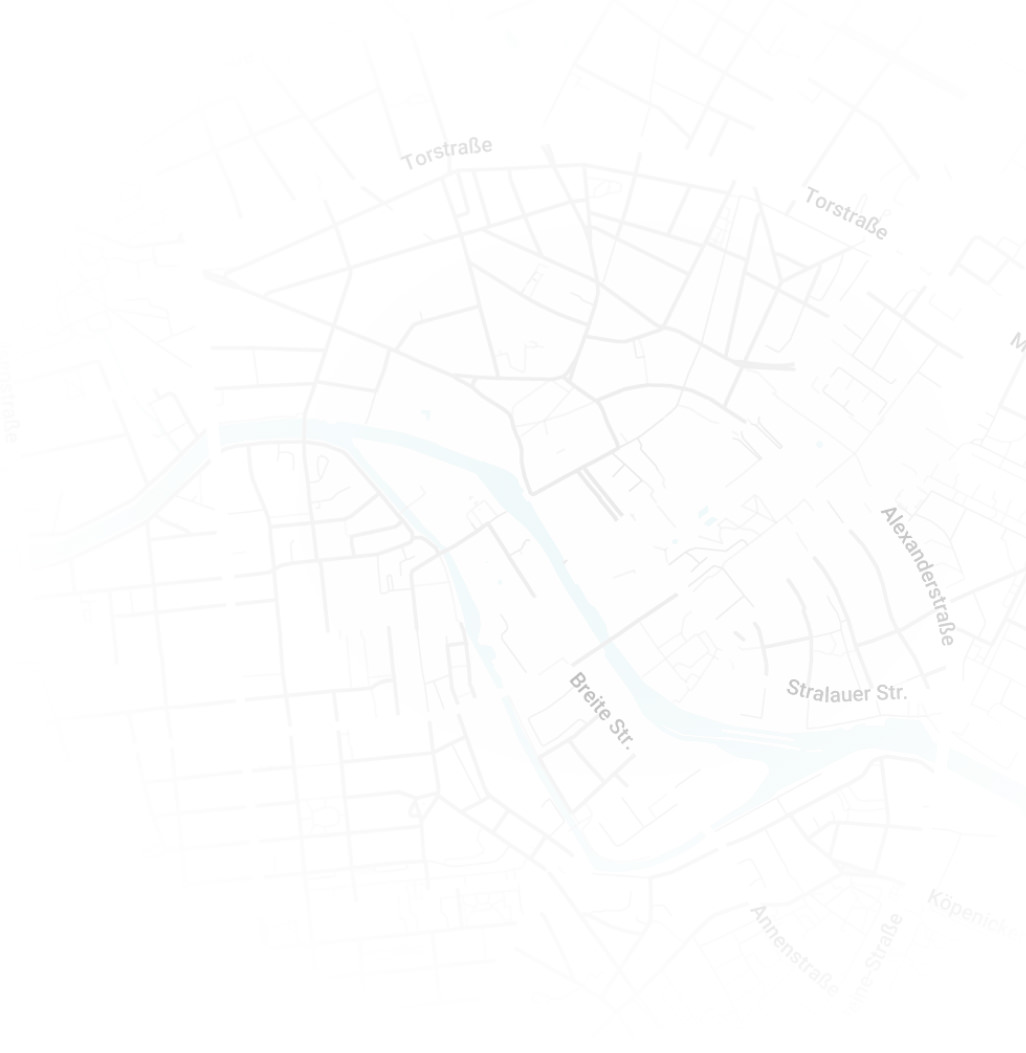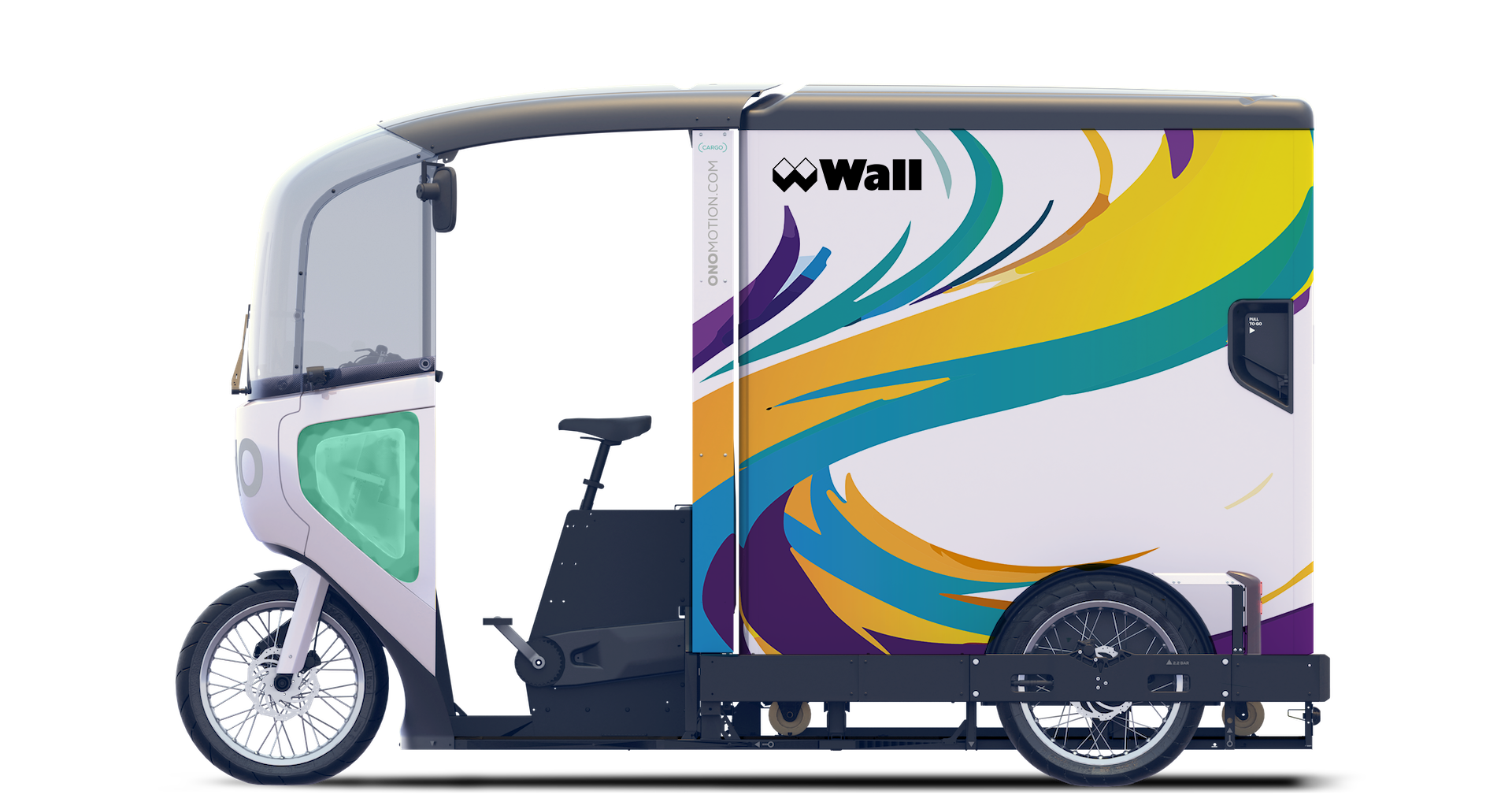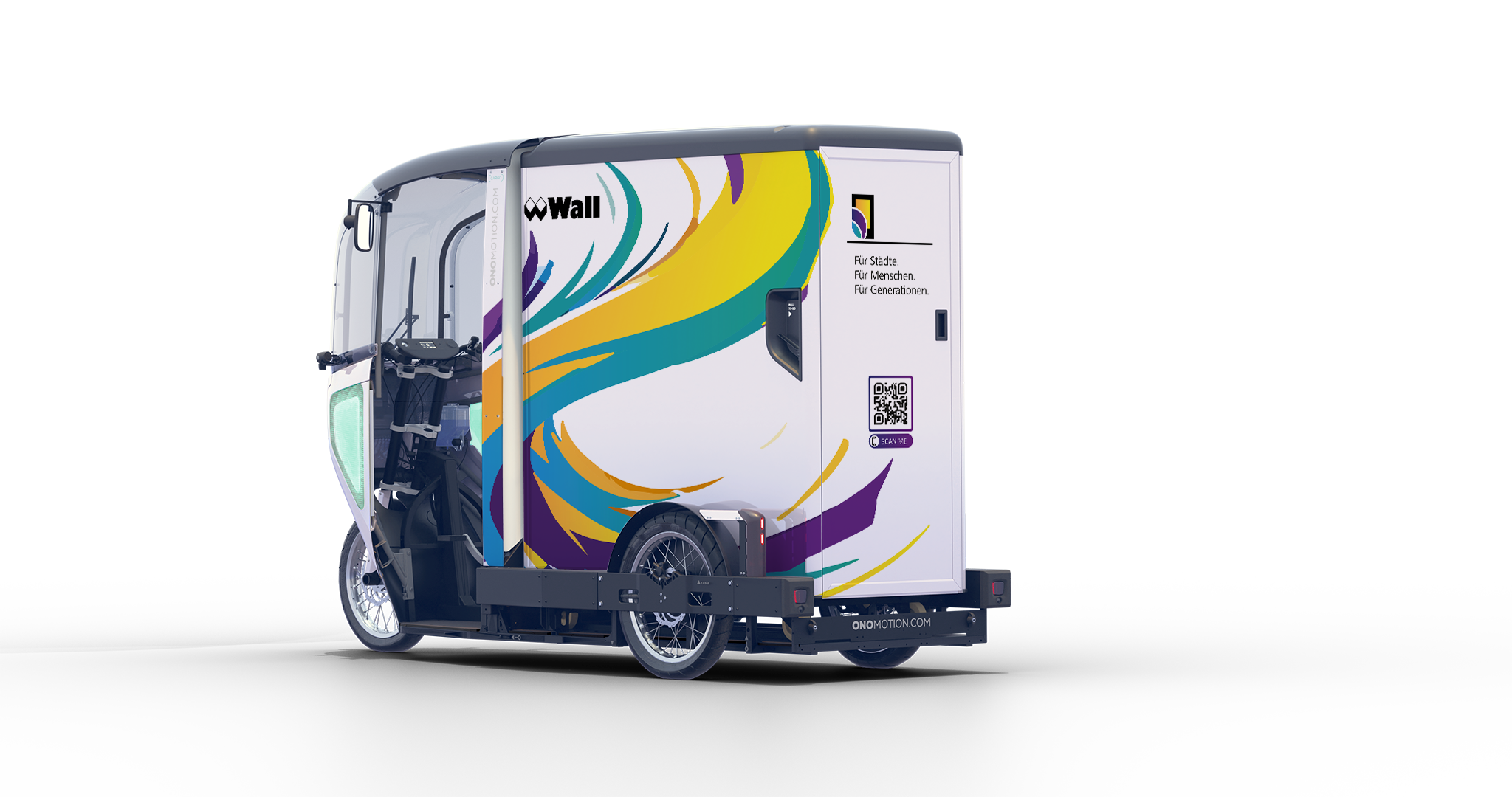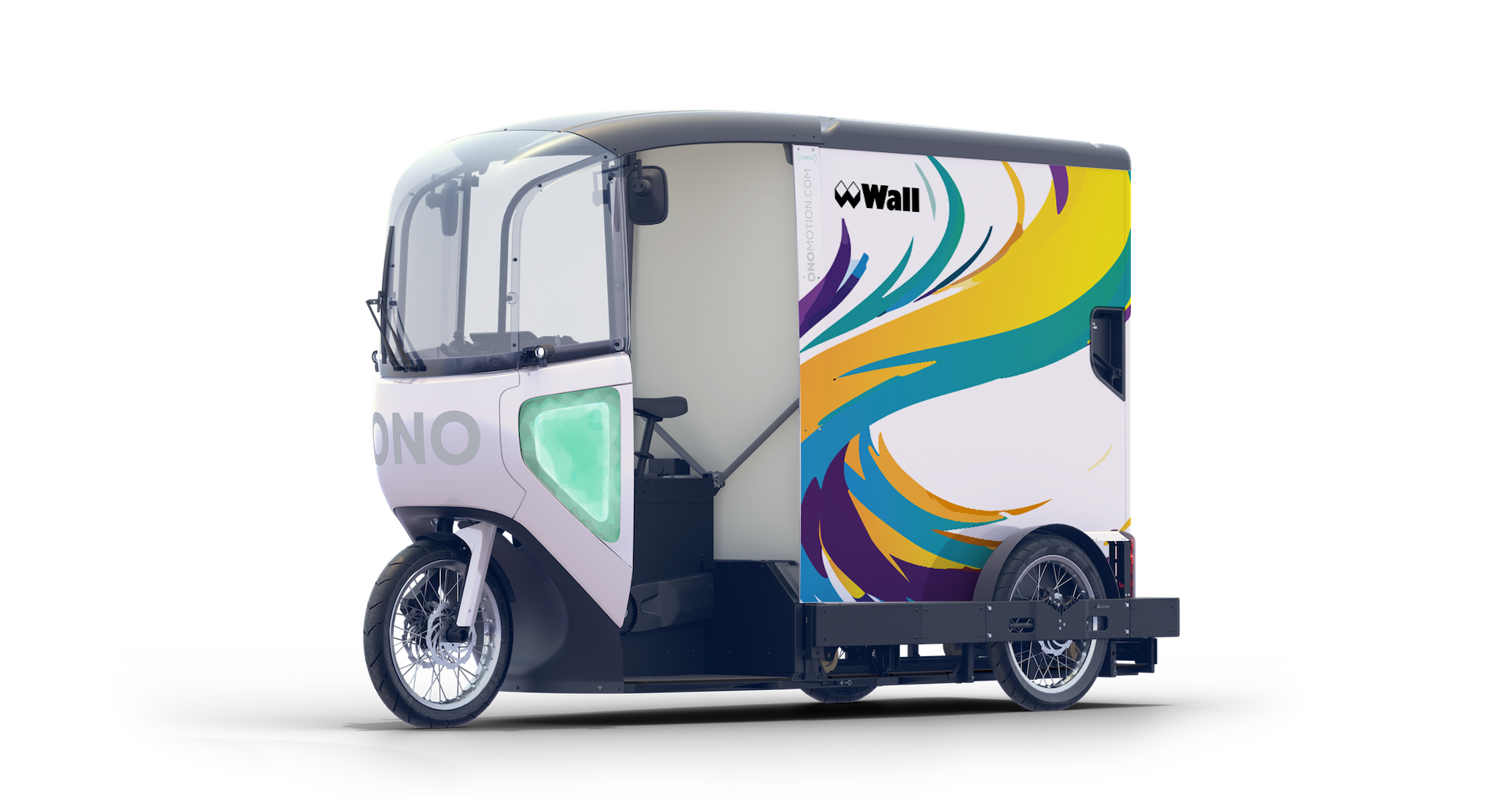
From billposting to cleaning: Wall uses the flexibility of e-cargo bikes
Wall GmbH is a Germany-wide specialist for street furniture and outdoor advertising and part of JCDecaux SE, the number 1 in outdoor advertising worldwide. Headquartered in Berlin, the company is a marketer of premium outdoor advertising with analog and digital advertising panels as well as transport media in around 20 major German cities, including all cities with over a million inhabitants like Berlin, Hamburg, Munich and Cologne.
All the company’s activities are subject to an ambitious sustainability strategy that is aligned with the UN Sustainable Development Goals.

In Berlin, Wall uses the flexibility of a total of four ONOs for the daily work tasks of the service team. Two e-cargo bikes are used for putting up posters on advertising panels and a further two for cleaning digital advertising panels. All ONOs have been converted to suit their tasks and offer the full range of functions required to complete the work. The bikes for the cleaning service area have a built-in water tank for holding environmentally friendly, demineralized water, which is used exclusively for chemical-free cleaning of street furniture.
There are plans to expand the use of e-cargo bikes. Wall will soon be testing an ONO in Hamburg.
From the central service branch in Berlin-Reinickendorf, the Wall service employees set off on their tours with the ONO e-cargo bikes from ONOMOTION. The bikes were previously supplied with the necessary green electricity at the company’s own charging points. Thanks to their modular design, the cargo bikes are adapted to their specific use. Their flexibility in traffic areas is a major advantage. In city center locations and pedestrian zones in particular, Wall employees can drive up close to the advertising panels located there and carry out their work. Karsten Zander, Wall’s Regional Manager for Service in Berlin and Brandenburg, sees this as an opportunity for the use of ONOs: “The traffic situation in major cities is changing and is becoming increasingly calm. With the e-cargo bikes, we can continue to reach our advertising panels easily and replace service cars at the same time. The ONOs have proven their worth by fully integrating them into our operational processes.”
In future, the bikes will be used decentral by Wall. This means that they will start from and return to smaller service bases. This reduces the distances traveled and is less time-consuming.
In terms of Wall’s sustainability strategy, the e-cargo bikes are in line with the company’s own targets for reducing greenhouse gas emissions. Nathalie Bordier, Sustainability Manager at Wall, categorizes the advantage of ONOs as follows: “We can achieve significant savings in CO2 emissions, especially when it comes to transportation. That’s why e-cargo bikes are an important component for a company’s vehicle fleet.”


